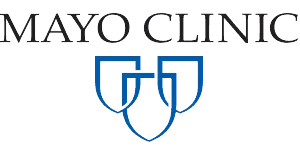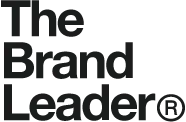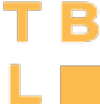this that this that
Brand Archetypes
The Sage
The sophisticated and brilliant Sage archetype is well educated and wise. They want to guide you, teach you, and lead you to truth. The truth, it seems, will set you free.
What is the Sage Brand Archetype?
The Sage is the archetype that doesn't guess, it knows. This is the brandthat reveals truth. It enlightens.
Driven by Truth, Defined by Wisdom
Sage brands are driven by an insatiable hunger for knowledge, understanding, and truth. They see the world as a mystery to be decoded, a system to be understood, and a collection of facts waiting to be organized and shared. And they're not pursuing knowledge for profit alone, they're doing it because ignorance is the enemy. Because understanding matters. Because truth demands it. The darkness needs illuminating.
What are some examples of Sage brands?
- CNN
- Harvard University
- BBC
- Mayo Clinic
The Psychology of The Sage Brand Archetype
Map this to the Enneagram and you get Type 5: The Investigator. The deep need to understand how things work, and the belief that knowledge is the most valuable resource because it's the only thing that can't be taken away.
Sages are fueled by intellectual curiosity and a commitment to truth over comfort. They believe that understanding prevents mistakes, that knowledge empowers decision-making, and that ignorance (not evil) is humanity's greatest enemy. They ask: "What is actually true, regardless of what's comfortable to believe?" So they research. They analyze. They never stop learning.
This is why the BBC doesn't merely broadcast news. Rather, they provide trusted, impartial reporting that's earned global credibility over nearly a century. The BBC's commitment to balance and verification has made "BBC says" shorthand for "this is actually true." Similarly, Harvard University has become synonymous with academic excellence and intellectual authority. A Harvard degree signals verified expertise and rigorous thinking.
The Sage Brand's Promise
Every Sage brand makes the same core promise: "With us, you will understand," which is selling knowledge and clarity. That is, the information, analysis, and insight you need to make better decisions and see the world accurately.
Take CNN (at its best). They became essential by being "the most trusted name in news," by being where people turn when they need to understand what's actually happening in the world. Breaking news on CNN carries weight because their reporting infrastructure and verification processes have earned credibility. They understand their audience isn't seeking entertainment; they're seeking truth about events that matter.
Or consider Mayo Clinic, a healthcare institution that positioned itself not as the biggest hospital but as the most trusted medical authority. When Mayo Clinic publishes guidance, doctors listen. When they recommend treatment, patients trust. "The needs of the patient come first" is a philosophical commitment that medical knowledge should serve patients, not profits or egos.
The Sage Brand's Core Values
Truth Above All: Sages prioritize accuracy over popularity. The BBC has reported stories that angered governments, alienated audiences, and created diplomatic incidents, but they reported them because they were true and important. Their editorial independence is protected by royal charter specifically to ensure truth isn't compromised by political or commercial pressure.
Rigorous Methodology: Sages value process and verification. Mayo Clinic verifies treatments through clinical trials, and base recommendations on evidence rather than assumption. Their integrated practice model means multiple specialists review complex cases, reducing diagnostic errors. Methodology is how truth emerges.
Intellectual Authority: Sages build credibility through demonstrated expertise. Harvard has produced more Nobel laureates, Pulitzer Prize winners, and heads of state than virtually any other institution. CNN maintains bureaus globally and employs experienced journalists because authority requires infrastructure and expertise.
Educational Mission: Sages believe knowledge should be shared, not hoarded. The BBC makes programming designed to educate, not just entertain. Harvard publishes research openly. Mayo Clinic maintains extensive patient education resources explaining conditions, treatments, and health guidance in accessible language. Knowledge serves humanity best when it's accessible.
Objectivity as Ideal: Sages strive to remove bias from understanding. The BBC's editorial guidelines explicitly require impartiality, presenting multiple perspectives and letting audiences draw conclusions. CNN (in principle) separates news reporting from opinion programming. Mayo Clinic bases treatment recommendations on evidence, not pharmaceutical company relationships. Perfect objectivity is impossible, but the commitment to pursue it is essential.
What are the Sage Brand's Sub-Archetypes?
While all Sages share core values, they express them differently. Understanding these nuances helps brands fine-tune their positioning and messaging.
The Scholar
Academic and rigorous, the Scholar pursues deep expertise in specific domains. Harvard operates as the quintessential Scholar. Their faculty are world-leading researchers, their curriculum is rigorous, and their standards are exacting. Authority comes from depth and sustained excellence across centuries. The Scholar's potential pitfall can be becoming so specialized or elite that practical application and accessibility disappear.
The Journalist
Investigative and timely, the Journalist uncovers truth and reports what's happening now. The BBC and CNN operate as Journalists—deploying correspondents globally, verifying facts under deadline pressure, and making sense of complex events for mass audiences. They turn chaos into understanding, events into context. The risk is the speed of pressuring accuracy, or competitive pressure compromising verification.
The Expert
Authoritative and specialized, the Expert is the definitive source for specific knowledge. Mayo Clinic embodies the Expert in healthcare—when you need to understand a complex condition or controversial treatment, Mayo Clinic's guidance is gospel. They're not generalists; they're the best at what they do. The trap can be expertise in one domain doesn't transfer to others, and experts who overreach lose credibility.
The Mentor
Teaching-focused and empowering, the Mentor shares knowledge to help others grow. Harvard operates as Mentor through education—taking raw potential and transforming it into expertise. The BBC's educational programming (documentaries, science shows) mentors audiences toward understanding. The danger lies in becoming preachy or condescending, or focusing so much on teaching that you forget to keep learning.
The Curator
Selective and discerning, the Curator filters signal from noise and presents what matters most. CNN curates news—deciding what's important enough to cover, which experts to platform, how to frame stories for understanding. The BBC curates programming and reporting. The risk? Curation becomes gatekeeping, or curators' biases distort what audiences see.
Building an Authentic Sage Brand
Your Truth Must Be Verifiable: Don't just claim accuracy—demonstrate your methodology. The BBC shows their editorial standards, maintains transparent complaints processes, and publishes how they verify information. Mayo Clinic explains their diagnostic approach and treatment rationale. CNN cites sources and provides context. Your authority depends on provable rigor.
Maintain Independence: Protect your ability to pursue truth without interference. The BBC's funding model (license fee, not advertising) preserves editorial independence. Harvard's endowment allows academic freedom without donor pressure. Mayo Clinic's nonprofit structure prioritizes patient outcomes over profit. Independence isn't luxury; it's essential for credibility.
Admit Mistakes Transparently: Sages build authority by correcting errors openly. The BBC publishes corrections prominently. Mayo Clinic updates guidance when new evidence emerges. Harvard scholars publish retractions when research proves flawed. Intellectual honesty builds authority; defensiveness destroys it.
Make Expertise Accessible: Sages have a responsibility to translate complexity into understanding. The BBC creates documentaries that make science accessible. Harvard professors teach undergraduates, not just publish papers. Mayo Clinic writes patient guides explaining conditions without medical jargon. Knowledge hoarded is knowledge wasted.
Build Systems for Quality: Create structures that consistently deliver accuracy. The BBC's editorial process includes fact-checking and multiple editorial reviews. Harvard's tenure system ensures faculty meet rigorous standards. Mayo Clinic's integrated practice means specialists collaborate. Quality can't be accidental; it must be systemic.
Stay Curious, Stay Humble: The moment Sages think they know everything is the moment they stop being Sages. The BBC continues investing in new journalism forms and platforms. Harvard constantly evolves curriculum. Mayo Clinic funds research into conditions they don't yet understand. Wisdom includes knowing how much you don't know.
The Sage archetype endures because it speaks to something fundamental: the human need to understand, to make sense of complexity, and to make decisions based on truth rather than manipulation. In a culture increasingly characterized by misinformation, propaganda, and "alternative facts," Sage brands provide the clarity, rigor, and intellectual honesty people crave.
They remind us that truth exists and is worth pursuing. That knowledge empowers better decisions. That understanding prevents mistakes. And that in a world drowning in information, wisdom is the ability to distinguish signal from noise, to verify what's true, and to share understanding that makes lives better.
The Sage Connection Strategy
To connect, a Sage will engage through knowledge and common interest or facts. They will impart their knowledge because knowledge helps people see truth.
The Sage Brand Voice
Knowledgeable
Assured
Guiding
The Sage Brand Colors

The Sage Brand Examples

![]()
![]()


